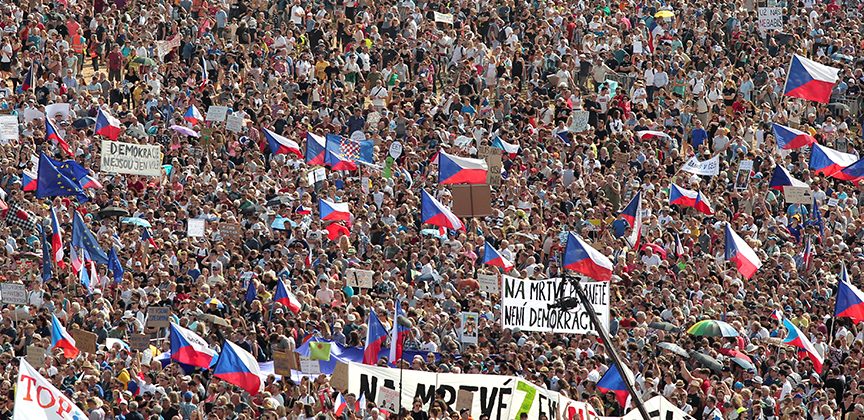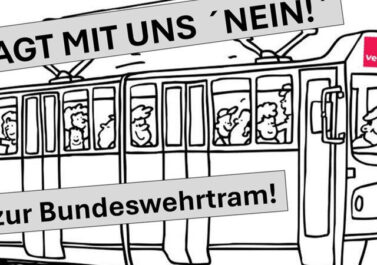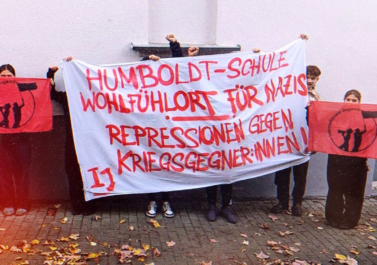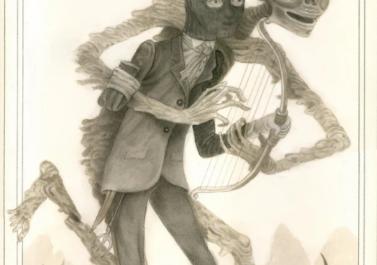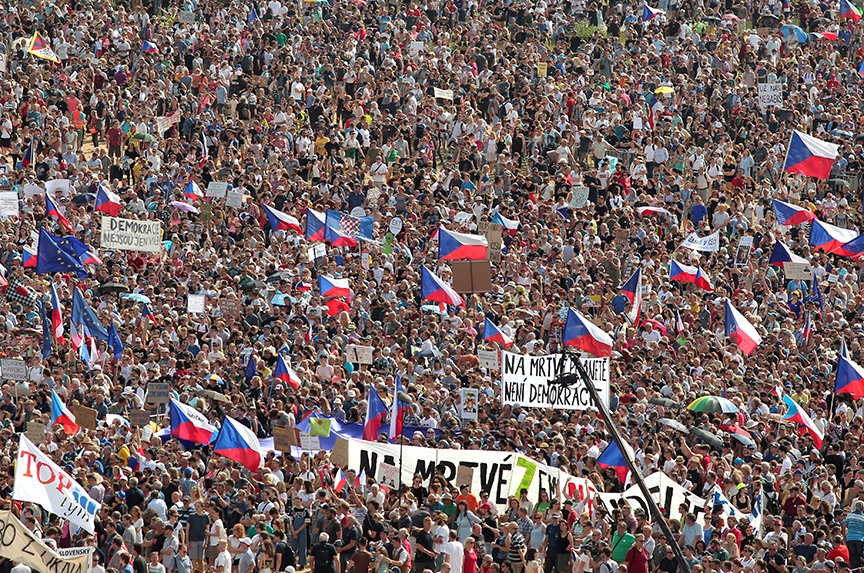
A comrade from Czech Republic sent us these short comments. It is tragic that it is the far-right which leads a demonstration against the cost of living crisis and the war. For us there are a few things to consider here.
First of all, we still don’t understand enough about the composition and political dynamics within current ‘popular discontent’. By popular discontent we mean mobilisations which take up economic issues or the resistance against certain state measures on an inter-classist level, e.g. comprising workers as much as small business owners, speaking as ‘the citizens’ or ‘the people’. The Yellow Vest protests or some of the recent demonstrations against the state lockdown during the Covid pandemic show that while these are not necessarily ‘right-wing’ mobilisations, their material nature tends to address problems as ‘citizens’, which automatically begs the question who belongs to this group and who doesn’t. More importantly, the working class participants of these mobilisations tend to refrain from raising their own class demands, such as higher wages, as this would threaten to create conflicts with other ‘citizens’ within the movement, e.g. those who employ others and have an interest in low wages.
These are very general considerations. Currently we have to understand how the far-right combines a seemingly ‘internationalist’ issue, such as the opposition against war, with patriotic or nationalist perspectives. This can only partly be explained by the attraction of Putin or the Russian state within the global nationalist forces. There is a material core in the critique of ‘globalisation’ or ‘western neoliberal imperialism’ voiced by the nationalist far-right. The desire to ‘take back control’ is not an irrational reaction to a global crisis. In recent years the political left has framed their critique of ‘globalisation’ also primarily in terms of nation-state politics, from Syriza to Corbyn. It was about nationalisation or ‘stronger state intervention’. The political right has always been the better ‘national player’, as it is more apt to react to the contradictions of a national state in a global economy. In this sense the parliamentarian or statist left has helped to undermine working class internationalism – a result of which are phenomena like the recent demo in Prague.
It won’t be enough to develop the sharper criticism of the status quo. In the end it is about having a voice within the class. We can’t rely on spontaneity. As with any of kind of social conflict, the dice are loaded in advance. We can see this on a much smaller scale by comparing the GKN redundancies in Italy and the UK. In Italy, with political clarity and the strength and depth of their relationships, they were able to break through and become a leading pole for the broader class; in the UK, political decomposition and weak existing organisation translated into futile appeals to the nation, e.g. during the trade union mobilisation ‘Don’t betray Britain’, against redundancies at British Airways. The hard and independent struggle for our collective interests as workers is the necessary foundation for a re-emergence of working class internationalism – and the global character of the crisis and modern production enforces that in the medium term only struggles that reach out to other workers beyond the national boundaries will be successful.
——-
i) This was not (just) a demonstration against the rising cost of living. This was a demo of catch-all style trying to exploit everything it could; the invitation poster also mentioned “immigrants, censorship, masks, vaccinations, testing, war sanctions, digital currency, war”. The general aim was to “unite all patriotic forces”. The direct organizers came from the platforms of covid protests. Fascists (the Party of Direct Democracy, the Workers’ Party of Social Justice), the Communist Party, right-wing supporters of “Chechxit” and the minimal state (the Tricolor Party, economist Ševčík, fan of Friedman), nationalist/anti-immigration mini-groups ala the National Militia, the Alliance of National Forces, the bigoted Christian/nationalist alliance D.O.S.T., joined and/or supported the event, also disinformationists, solitaries (former police president, former president of the agrarian chamber…).
ii) The main and only political innovation of the action was to align oneself with Russia. Criticism of the West (the EU, Brussels “democracy”, globalisation, German colonialism, etc.) was already present during the covid protests, but the Russian invasion of Ukraine accelerated the orientation of the fragmented forces that were coming together during covid (and before it, during the migration crisis): “against who” had been clear for a long time, but now “FOR who” was revealed – and speakers and some protesters’ banners were not shy to say it: for Russia. The rejection of the West has been given a protagonist, superpower to cling to, thanks to the Russian invasion.
iii) Energy prices and inflation in general was no doubt what brought so many people to the demonstration (there were probably more than the police figure of 70,000; between 70 and 100 thousand). And it will surely give fuel and stamina to the discontent (along with the burden of Ukrainian refugees).
iv) Most participants at the event were surely there because of the rising cost of living, not to “unite patriotic forces”. But “patriotic forces” (nationalists, xenophobes, etc.) are at the helm and it is accepted.
The alignment with the Russian camp may not have been fully, wholeheartedly shared by all the participants in the demonstration (Incidentally, its composition seems to have been more socially rich than that of the covid protests: small tradesmen and the poor fringes of the working class took part in them, and on Saturday, 3rd of September the more affluent working class and businessmen also seemed to turn out. Naturally; because the Czech government has been much more passive on the issue of energy than the surrounding governments of the right and left, both towards workers and businesses.). But pro-Russian attitudes won´t be an obstacle for those people to come to the next demonstration with the same organisers, slogans, speeches, appeals – with the same politics.
The audience of the protests certainly shares the main axes of the speeches (which is also why the leadership of the “patriotic forces” has no competition): the complete lack of interest in defending wages and working conditions in workplaces, the call for protection by the state (of Czech companies and those parts of society “that deserve it”), the “liberation of companies from foreign oppression”. Also “direct negotiations with Putin on gas supplies” etc.
v) Clearly the content of the protest is a product of an absence of struggles in workplaces (and the generally shared workers´ sentiment that it is not possible to struggle in workplaces), which within current geopolitical movements and the war takes a dangerous orientation.
vii) A few questions to be studied:
Will this lead to a structured movement? (For now it seems there have been not any local meetings before the event just Facebook announcements and Facebook groups – and “lets meet in Prague”). All previous similar agitations failed to produce a leader and a coherent organisation (they didn´t go beyond eccentric and questionable personalities and plethora of quarrelling groupings).
The target the demonstration announced is too ambitious: either demise not later than 25th September or “we will call the right to resistance” (?) What exactly will they do?
Will the ex-government party of Babiš be able to capitalise from the protests? Those with roots in the Covid protests are out of reach because they are strongly anti-Babiš (Babiš = lockdowns, masks etc.) but other ones can already be Babiš supporters or open towards him. There will be local and Senate elections 23rd and 24th September.
